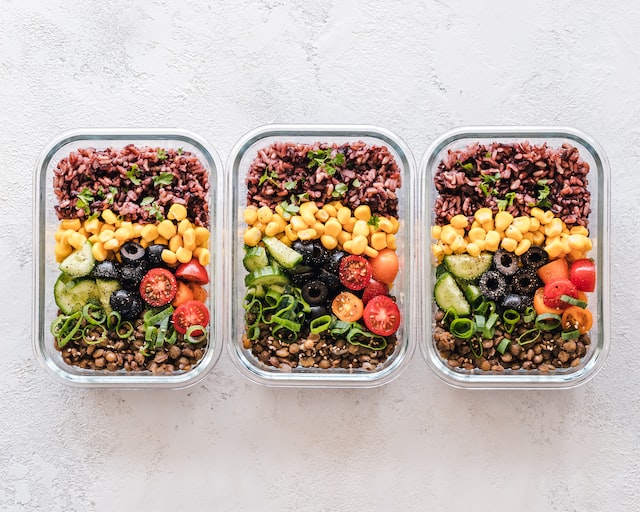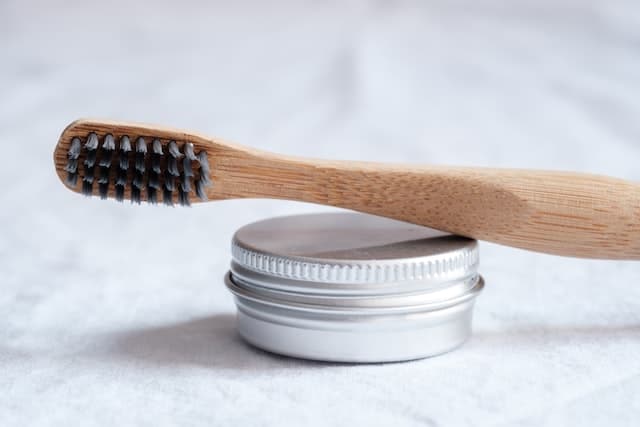Introduction – Choices Lead To Altered Sustainability
When you take small steps toward sustainability, you create a ripple effect that can lead to big changes. Sustainable alternatives are a great way to reduce your carbon footprint and help preserve our planet for future generations.

Many sustainable alternatives are available for common household items, from food and cleaning products to building materials and clothing. Sustainable choices often cost a bit more upfront, but they can save you money and help protect the environment over time.
Switching to sustainable alternatives is a great way to reduce your ecological footprint. Every little bit helps, and sustainable choices can add to big changes. Luckily, environmentally-friendly and sustainable products are becoming more available and affordable.
10 Sustainable Alternatives
If you want to live a more sustainable lifestyle, but don’t know where to start, here are 10 easy and affordable alternatives for common household items.
1. Reusable Shopping Bags
Bringing your reusable shopping bags to the grocery store is a sustainable alternative to plastic and paper bags and helps reduce waste and save resources. Each year, millions of single-use plastic bags end up in landfills or as litter in our oceans, harming wildlife and polluting the environment. Reusable bags, on the other hand, can be used repeatedly, eliminating the need for disposable options. Plus, many reusable bags are made from sustainable materials like organic cotton or recycled plastic bottles. Switching to reusable shopping bags is a simple change with a big impact on the environment and our planet’s future.
2. Homemade Cleaning Supplies
Did you know that the average household cleaners contain harmful chemicals that can damage our health and the environment? Luckily, there’s a sustainable alternative – homemade cleaning supplies. Not only do they eliminate the use of potentially dangerous chemicals, but they also reduce plastic waste from packaging and transportation. And let’s not forget about the cost benefits – many homemade cleaners use common household ingredients such as vinegar, baking soda, and lemon juice. Plus, it’s easy to customize your cleaners using essential oils based on your scent preferences. So next time you reach for that bottle of store-bought cleaner, consider creating your sustainable alternative with homemade cleaning supplies. It’ll save money, reduce waste, and keep you and the planet happy and healthy.
3. Reusable Coffee Pod
Switching to reusable coffee pods is a sustainable alternative to traditional single-use pods. These pods can be used repeatedly, eliminating the need for disposable plastic or aluminum pods that often end up in landfills. Not only does this positively impact our environment, but it can also save money in the long run. Reusable pods also allow you to choose your coffee blend, allowing for a customizable and unique cup of coffee every time. So next time you’re considering using a single-use pod, consider switching to a reusable one instead.
4. Zero Waste Tea
One sustainable alternative to traditional tea packaging is zero-waste tea. These teas are either loose-leaf or packaged in biodegradable materials, such as cornstarch or bamboo. While it may require a bit of effort on the part of the consumer to find a zero-waste option and use a tea infuser or tea ball, this small change can significantly reduce single-use plastic waste. In addition, many sustainable tea companies also prioritize fair trade and organic practices, ensuring that the production of their products has a minimal negative impact on both people and the environment.
5. Cotton Dish Towels
When it comes to cleaning up in the kitchen, cotton dish towels are a sustainable alternative to disposable paper towels. Not only do they last longer and cut down on waste, but they also absorb liquid more effectively. And when they start to wear out, they can easily be repurposed as rags or turned into something new through upcycling. In addition to their environmental benefits, cotton dish towels offer convenience and flexibility in the kitchen. They can handle hot surfaces without burning or tearing and come in various colors and styles to match any decor. So next time you’re reaching for a paper towel, think about using a cotton dish towel instead. It’s a small change that can make a big difference for the environment.
6. Bamboo Toothbrush
The bamboo toothbrush is a sustainable alternative to the traditional plastic toothbrush. It is made from bamboo, a renewable resource that is biodegradable and eco-friendly. Bamboo toothbrushes are also free of harmful chemicals, such as BPA, and are gentle on both teeth and gums. In addition, many bamboo toothbrushes come with bristles made from recycled plastic, making them even more sustainable. And when it’s time to replace your toothbrush, the bamboo can be composted or repurposed into something new. So next time you’re in the market for a new toothbrush, consider switching to bamboo. It’s a small change that can greatly impact our environment.
7. Reusable Food Storage Bags
Using single-use plastic bags for food storage has become a major source of pollution and waste. Thankfully, there is a sustainable alternative available: reusable food storage bags. These bags come in various materials, such as cotton or silicone, and can be used repeatedly instead of being thrown away after use. They are also as effective at keeping food fresh and can easily be washed between uses. The benefits of switching to reusable food storage bags go beyond just reducing waste – they can also save money in the long run and support sustainable businesses.

8. Glass Food Storage Containers
The use of plastic containers for food storage has become a common household practice; however, the harmful environmental impacts of continued plastic production and disposal are clear. Glass storage containers offer a sustainable alternative that not only helps reduce our impact on the environment but also offers several benefits for everyday use. Glass does not leach chemicals into food, is easy to clean, and does not retain odors or stains. Additionally, Glass can be used for heating and freezing, making it a versatile option in the kitchen. Now, switch to glass containers and help promote a healthier planet and lifestyle.
9. Reusable Beeswax Food Wrap
Have you ever used plastic wrap or aluminum foil to store leftover food? It may be time to consider switching to reusable beeswax food wraps. These eco-friendly alternatives are made from cotton cloth infused with beeswax, jojoba oil, and tree resin. Not only are they sustainable and biodegradable, but they also have the added benefit of being antibacterial. You can use the warmth of your hands to mold the wraps around bowls, sandwiches, and more. And when they eventually wear out, they can be composted or upcycled into fire starters. Reusable beeswax food wraps offer a sustainable solution for storing leftovers and reducing your plastic waste. It’s time to give them a try!
10. Compostable Trash Bags
People produce an overwhelming amount of waste daily, and traditional plastic trash bags have contributed to the problem by sitting in landfills for centuries. Switching to compostable trash bags made from sustainable materials like cornstarch or bamboo is a simple change that can significantly reduce landfill waste. Additionally, compostable trash bags can be thrown into your home compost pile or brought to industrial facilities to be turned into nutrient-rich soil for gardening and agriculture. Not only do compostable trash bags benefit the environment, but they also support sustainable farming practices and reduce our reliance on plastics derived from fossil fuels.
Wrapping Up
In conclusion, you can make many small changes in your daily life to reduce your impact on the environment. Ditch disposables in favor of reusable options, and choose sustainable materials over plastic whenever possible. Every little bit helps, and we can make a big difference for our planet. Thanks for reading!
